Sustainable tourism

By Mariia Rastvorova (email).
I felt the vibes of sustainability/sustainable tourism right from the start of the conference. Instead of providing a printed conference program, the RSA provided participants with a very easy-to-use mobile conference app containing information on academic, networking and entertainment activities, maps and more. The paper conference badge was simultaneously a bus ticket allowing delegates free public transport during the conference.
Figure 1. Ljubljana is a WOW and tourism-sustainable city!
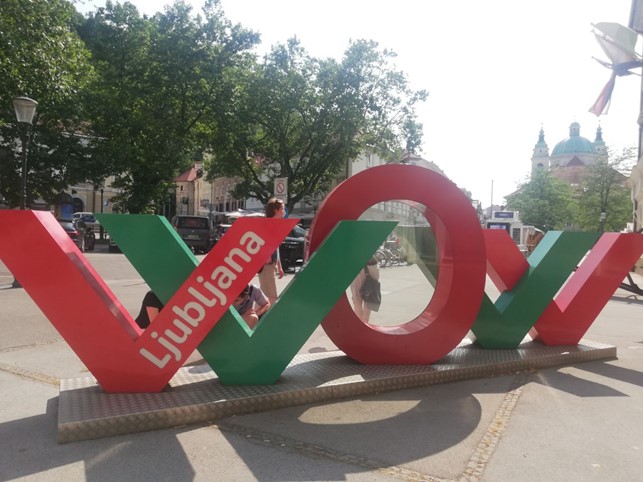
The connection “Ljubljana – sustainable tourism” has become very strong during “The Sustainable Mobility Good Practices Visit”. The city and region of Ljubljana are working to improve their transport sustainability by implementing EU sustainability transportation plans. One of the city’s biggest achievements was removing cars from the inner city. I was amazed at the comparison of the photos demonstrating the view of one of the central squares on the previous stage (the space was occupied with cars) and after that since the inner city has become pedestrianized.
Figure 2. RSA Annual Conference 2023 badge.
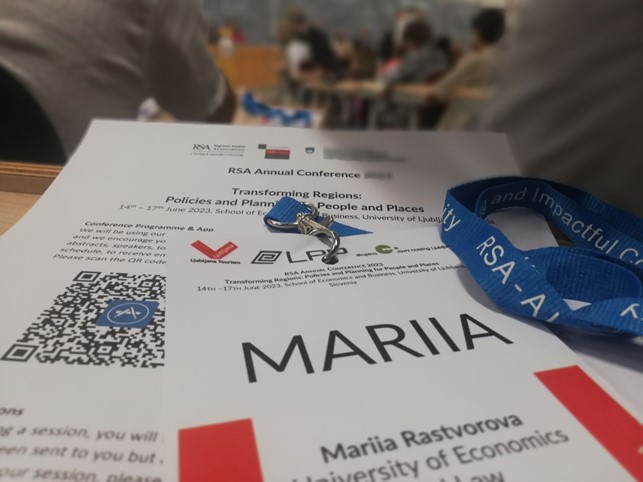
My heart was deeply touched by “Kavalir” – an initiative that has drivers of small sports cars (municipal service) who are ready to provide help, information, and a free ride for everybody who wants or needs it – senior people, people with disabilities, tired people, and tourists in the inner city.
Figure 3. Cars or People: who is the city space for? (Source: RSA)
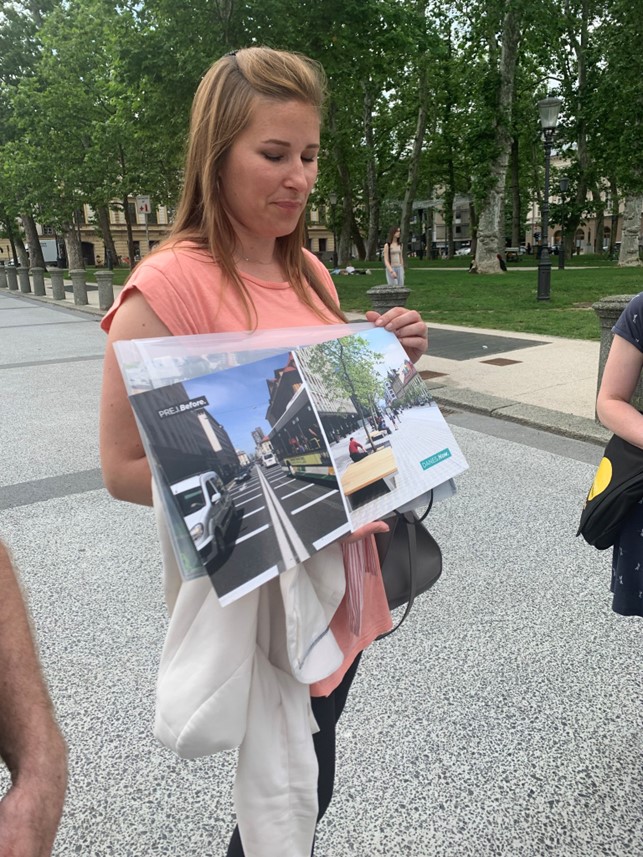
Figure 4.1 Gallant Ljubljana Kavalir, with its car, is ready to help everybody! (Photo by Mariia Rastvorova)
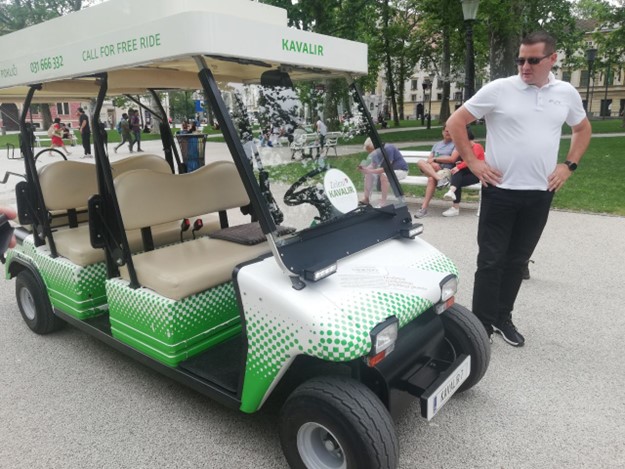
Figure 4.2 A Gallant Ljubljana Kavalir with his car ready to help everybody! (Source: RSA)
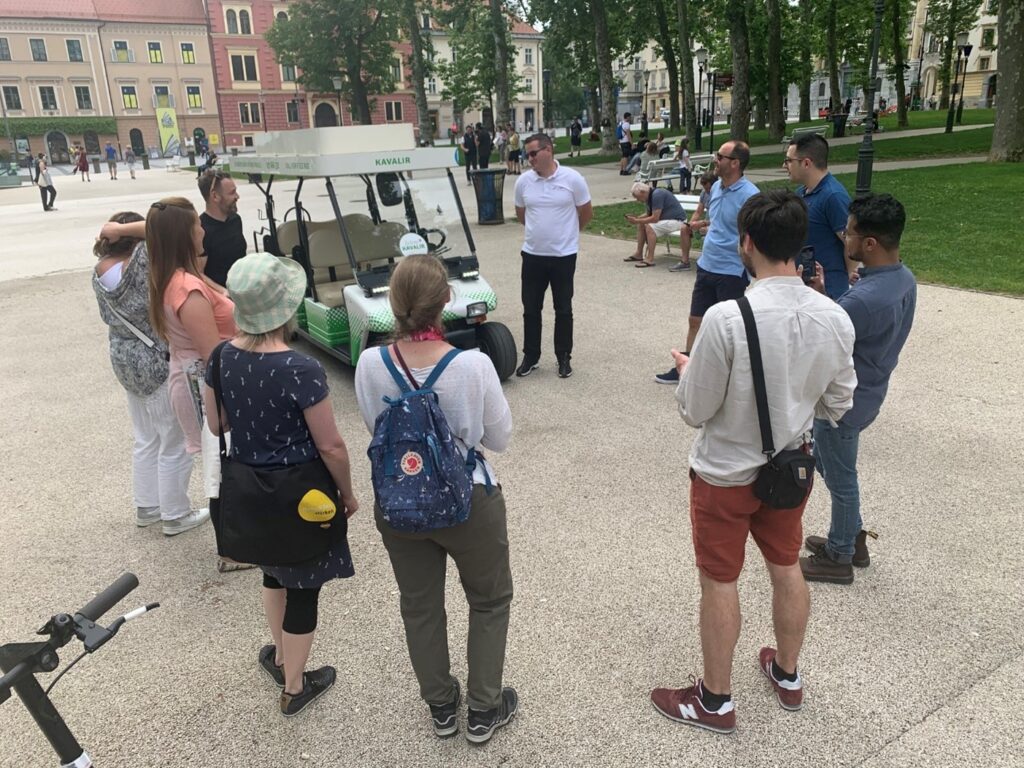
The conference programme also featured several presentations on the topic of sustainable tourism. For example, Ioannis Papageorgiou, Researcher at the Rhodes Centre for History and Social Research (“Cultural Heritage Management as Policy in Rhodes, Greece: In Search of the Predicate”) showed in his presentation an outstanding contrast between refugee slums and the hotels in the historical area of the medieval city in Rhodes and emphasized on the importance of the management of the historic district.
Damjan Kavaš, Rector of the Institute for Economic Research, presented the outcomes of the big international project sharing the innovative and sustainable public-private cooperation management models for cultural heritage buildings as drivers of urban development in several cities of the EU. Such a transformation needs a management plan for the whole area as well as the involvement of people both in strategies and the decision-making process.
Kyra Tomay and Gusztáv Nemes from the University of Pécs (SS48: New Patterns of Rurality Under the Era of Urban Dominance: How Urban Influences Affect the Rural Social, Economic and Cultural Life?) presented a scenario of rural tourism gentrification based on examples in Hungarian villages. Highlighting that traditional rural areas were transformed for new users as places for intellectuals, filmmakers, elite mass tourism and gastronomic events, thus not for the residents with their usual rural lifestyle. Several interesting ideas were put on the stage: 1) “A lot of rural development policies and programs exclude local people but focus on larger external stakeholders; 2) “Rural tourism is not a PANACEA” thus 3) “Reflexive agency, local empowerment, governance and cooperation could provide sustainable solutions”.
Figure 5. Dynamic presentation by Kyra Tomay and Gusztáv Nemes from the University of Pécs about rural gentrification in Hungary. (Photo by Mariia Rastvorova)
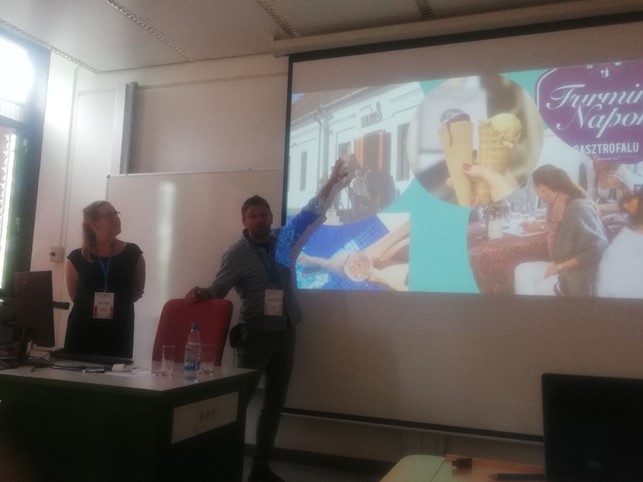
Julie Wilson, Associate Dean for Research, Faculty of Economics and Business, Universitat Oberta de Catalunya, shared her research on “Cities, Tourism and Intra-urban Mobilities: Towards an Integrated Governance Agenda”. David Klepej, Junior Researcher, Biotechnical Faculty, University of Ljubljana, spoke about the integral territorial governance model for urban tourism destinations (Sustainable Tourism 3: Governance and Futures).
Gunhild Wedum, Associate professor, Inland Norway University of Applied Sciences, presented on facilitating green innovation in peripheral regions – using service design as a RIS co-creation technique. Jörn Harfst, Research Associate, University of Graz, rethought cultural heritage, digitalisation and the periphery as the road towards more sustainable regional development (SS38 II: Transforming Peripheries II).
My presentation “Transition of Rural Mountain Region under COVID-19 and War: Challenges and Opportunities (Case Study of Eastern Boykivschyna Ethnographic Region, Ukraine)” (SS06 I: New Pathways for Multifunctional Rural Regions B) also highlighted sustainable tourism as the way of regional development for rural areas.
The topic of sustainable tourism runs like a golden thread through the RSA Annual Conference 2023. Thus, the excursion to the Postojna cave during the last day of the conference brought additional insights (as well as questions) into sustainable tourism and its essence. This cave is the biggest in the world and has been a tourist attraction for over 200 years. Visitors can ride on a miniature train through the cave system. When I saw the huge halls, majestic stalactites and stalagmites of natural origin and met the “babe dragon” (an olm living in the cave’s water and eating only once every 7-10 years), my soul was impressed. I have realized how both amazing and fragile such places are; how crucially important it is to preserve them but also to show them to people for their inspiration; and how important the topic of sustainable tourism is, particularly from the Regional Studies perspective.
Figure 6. Mass tourism and majestic nature forms in Postojna cave. (Photo by Shuangfa Huang, University of Sheffield)
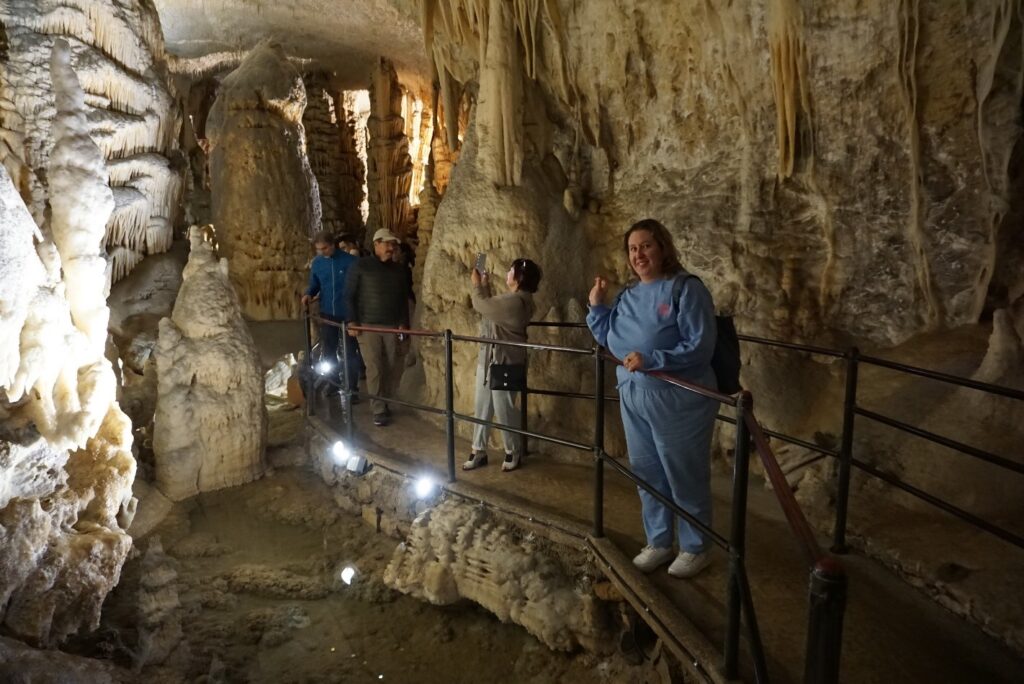
Figure 7. Landscape portrait on Bled Lake. (Photo by Siddhi Chopda, Cardiff University)
Conference photos, plenary recordings and a short conference video of the 2023 Annual Conference in Ljubljana are available at 2023 RSA Annual Conference.
The next RSA Annual Conference #RSA24 will be held 11th -14th June 2024 at the University of Florence, Italy. For more details, please go to 2024 RSA Annual Conference.
We hope you can join us in Florence for the #RSA24.

Author
Dr. Mariia Rastvorova, PhD (Human Geography), is an Associate Professor of the Tourism Department at the University of Economics and Law “KROK”, Kyiv, Ukraine; Dr. Rastvorova is also a visiting PostDoc Researcher at the Institute of Geography and Regional Sciences, University of Graz and a National Trainer for Tourist Guides certified by the World Federation of Tourist Guide Associations. Her research interests and practical field include destination branding, governance in tourism, and regional development. Contact details: email and LinkedIn